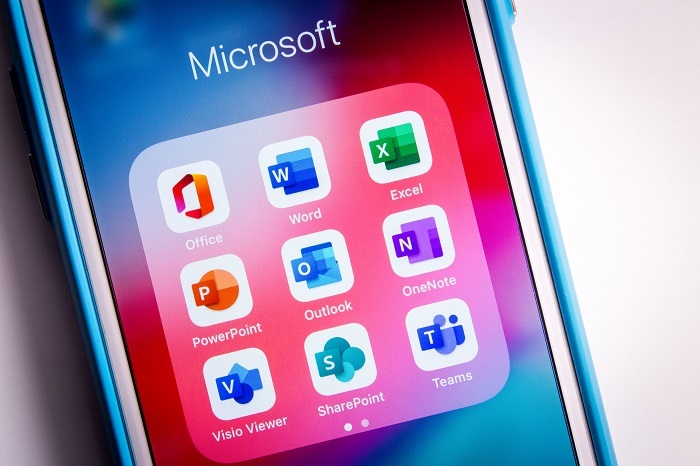
 Data Structure
Data Structure Networking
Networking RDBMS
RDBMS Operating System
Operating System Java
Java MS Excel
MS Excel iOS
iOS HTML
HTML CSS
CSS Android
Android Python
Python C Programming
C Programming C++
C++ C#
C# MongoDB
MongoDB MySQL
MySQL Javascript
Javascript PHP
PHP
- Selected Reading
- UPSC IAS Exams Notes
- Developer's Best Practices
- Questions and Answers
- Effective Resume Writing
- HR Interview Questions
- Computer Glossary
- Who is Who
Managing Time and Staying Organized with MS Office
Time management is crucial in today's always-connected, fast-paced work environment. If you suffer from time management, don't worry: working more effectively is a skill that anyone can learn. Whether you're a procrastinator, perfectionist, or dawdler, this blog offers time management tactics to help you stay on top of your professional responsibilities.

Why Should You Improve Your Time Management Skills?
Knowing how to manage your time effectively may help you finish jobs more quickly and in a more organized manner-even on your busiest workdays.
Improved time management abilities can also ?
Assist you in meeting deadlines more effortlessly and quickly.
Improve your interactions with coworkers, business partners, and vendors.
Improve your company's and your industry's reputation.
Increase your happiness and minimize stress, which might even benefit your health.
Contribute to your overall professional success
Working more productively, of course, does not imply working longer days or sacrificing work-life balance. Knowing when to take a well-deserved break from your desk and when to log out for the day is all part of working smarter.
Time Management Tips
A well-managed workweek may transform a stressful, chaotic workweek into a productive one. These ten-time management methods can be useful for you ?
Before getting in, Prioritize your Task
Refrain from working on the first thing that comes into your lap each morning. Organize your projects and activities by deadline and importance to your organization. Finish the most critical components that are due soonest. Then go to other crucial pieces that are due later.
Delegate when Feasible
Determine which projects you can delegate to junior staff or vendors. Make time in your schedule to clarify any specific tasks required and to be present in case queries arise. Outsource regular assignments to the same individual or team as often as possible.
Make a Plan
When a new project lands on your plate, set aside some time to review the specifications?even if you won't be able to get started for a few days. Determine if you have all the details you need to finish the job, where you can get the missing information, or who you can turn to for help.
Make a Project Timeline.
Break down larger projects into individual jobs while making a list of them, and estimate how long each assignment will take. Put each activity on your calendar or project tracking application. So you know when you need to start and finish it. Determine which responsibilities, if any, you may assign to your coworkers or business vendors.
Make a Plan for your Tasks
Gather contact information for stakeholders and collaborators before diving into the meat of a project, and set up the required files, folders, and online chat groups. A little forethought now might save you time and frustration when the project heats up.
Avoid Multitasking
Switching back and forth between projects all day disrupts your flow. Instead, prioritize one activity at a time and reserve comparable, lesser activities like responding to emails or filling up spreadsheet fields to do all at once.
Take some Time to Refresh your Energy
Before switching between projects that require a lot of focus, take a few moments to step away from your computer. You might find that this provides you with the mental reset you need to stay motivated throughout the day.
Set Meeting Times and Stick to Them
Before you arrange or agree to attend a meeting, consider whether it is required. Schedule meetings for the minimum time you believe you'll need and do everything you can to keep them on track.
Reduce Distractions
Turn off your phone and log out of social media accounts you are not using for business. If you're working on a challenging or time-sensitive project and want to decrease instant messages from coworkers, don't be scared to use your team's workplace chat app's "busy" or "do not disturb" settings.
Set Longer-Term Objectives
Maintain a list of critical but non-urgent projects to do throughout the year and include them in your monthly or quarterly agenda. Break each one down into phases or milestones, and then into smaller tasks. Goals without a plan seldom get fulfilled.

Tools to Boost Your Time Management Skills
The internet is teeming with apps claiming to help you work more efficiently and keep organized. Digital technologies that can help you manage your time effectively include ?
To-do Lists ? Keeping a daily and weekly to-do list will help you stay organized while reducing stress. Keeping a digital record of the chores you need to perform relieves you of the need to recall or spend extra time thinking about them. Creating a daily to-do list might also help you stay focused on the most critical and urgent activities you need to do each workday.
Calendars ? Your digital calendar isn't simply for reminding you when your next staff meeting is. Use it to mark deadlines for high-priority assignments, see your weekly and monthly due dates in one place, and set aside time for intensive work that requires undivided attention.
Spreadsheet, Scheduling, or Project Management apps ? The more complicated the project, the more comprehensive the tools are in need to manage its milestones.
Time Tracking apps ? Clockify, Toggl, and My Hours, for example, measure how much time you spend on each work or project. Track how much time you spend on each aspect of your profession for a month using one of these apps. (How much time do you spend chit-chatting with coworkers?) Then concentrate on eliminating time wasters from your calendar.
Begin Employing Time Management Tactics to Boost Productivity
It takes time to understand how to manage your time effectively. We're all aware that we should restrict the amount of time we spend at work on non-essential chores like sending hilarious cat memes to coworkers and responding to personal text messages. However, this does not imply that we always live up to this ideal.
Developing effective time management abilities, like any other habit, needs practice. To receive the benefits, you must first put forth the effort. The sooner you begin using these time management tactics and tools, the sooner you will get control of your task.

